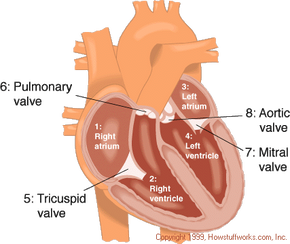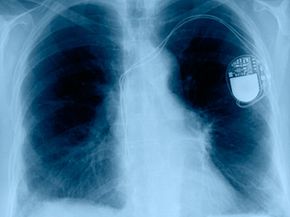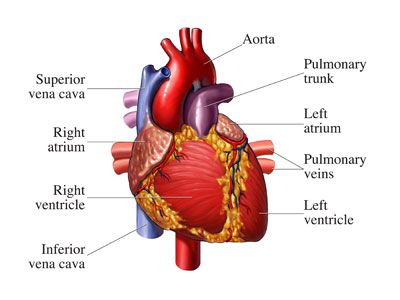When a doctor checks your heartbeat, have you ever wondered how it stays so regular? Or what's gone wrong when someone has to get a pacemaker? When it comes to the heart, timing is critical. Without a strong heartbeat, blood can't get to where it needs to go, and a heartbeat needs to be steady in order to be strong.
To understand what sets the beat of your heart, and why that rhythm is so important, it's first helpful to understand what exactly a heartbeat is and what it does.
Advertisement
A "beat" is a contraction of the heart. Each time a section of the heart contracts, it forces blood from one point to another. It goes like this:
- When blood returns to the heart from the rest of the body, it flows into the right atrium (1). The blood has been supplying oxygen throughout the body and needs a refill.
- The right atrium fills with this blood, which then flows into the right ventricle (2), as well. The right ventricle is going to send the blood into the lungs for an oxygen fill-up.
- To get as much blood into the right ventricle as possible, the right atrium contracts, pushing all of the blood down into the ventricle.
- Once the right ventricle is full, it contracts, forcing the blood into the lungs.
- Once the blood has picked up oxygen, it moves from the lungs to the left atrium (3), and then down into the left ventricle (4). The atrium contracts and then the ventricle contracts, like on the right side.
- The right and left atriums actually contract at the same time. The right atrium pushes oxygen-low blood into the right ventricle, and the left atrium pushes oxygenated blood from the previous cycle into the left ventricle.
- When the left ventricle contracts, it sends the blood to the rest of the body.
- The blood eventually returns to the right atrium, low on oxygen, and the process starts again.
In each heartbeat, the atrium has to contract first, or else the ventricles will be low on blood and their contractions won't be effective.
What exactly keeps the pace? Since your heart is your body's engine, it makes sense that it might work something like the engine in your car: It starts with a spark.
Advertisement


